The Most Holy Sacrament of the Altar had been instituted. The words of leave-taking had been spoken by the Saviour. The hymn of praise, prescribed by the law, had been sung. When the Redeemer felt that the hour of His capture was drawing nigh, He left the Cenacle. He would not cause discomfort to the good man who had generously opened his house to Him for the institution of the Most Holy Sacrament. He wished to spare this friend all annoyance which might come to him, were the Lord to be seized in his house.
He left the city altogether. Beyond its walls, in God's open country, He decided to begin and to end His Passion, to show that He shed His blood not for Jerusalem alone, but for the entire world.
Jesus, as was His wont, went with His disciples to a garden situated on the Mount of Olives.
Gethsemane
The garden was distant about half a league from the Cenacle and belonged to a farm called Gethsemane, a word meaning "Oil Press." The way led over the brook Cedron, which, fed by the rains of winter, was dry in mid-summer.
Cedron (Kidron)
The word "Cedron" means a dark, obscure ravine, a vale of shadows. This name had been given the stream either because of the darkness spread by the thick growth of woods along its borders, or because the valley of Josephat, through which it flowed, was the valley of sin, the valley of tombs. For there, in olden times, sacrifices were offered to Moloch, there the Jews were buried.
Every year, over a specially constructed bridge, which spanned this deep rock-ribbed ravine, the red cow was led to the Mount of Olives, there to be burnt for the atonement of the people. Over the same way the scapegoat was driven out to be devoured by wild beasts, thus to give vicarious satisfaction for the sins of men.
We now behold, following the same way, the Son of God, the Pure One, the innocent Lamb, Who shall take away the sins of the world.
In days gone by, King David with his faithful adherents had also crossed the Cedron, in tears and his head covered in mourning, for he was fleeing from his son Absalom.
Christ crossed the brook, not to flee from His enemies, but to deliver Himself to the betrayer in the Garden of Olives. For Judas, the traitor, knew the place, because Jesus had often gone there with His disciples, especially in the days just passed.
Let us consider this circumstance of place and how significant this choice was.
Christ began His Passion in a garden, more precisely, in an olive-garden.
In a garden the first Adam had committed the first sin, the sin of disobedience; therefore, it was in a garden that the second Adam should say to His Father, "Not what I will, but what thou wilt."
In a garden Adam, by an abuse of liberty, had plunged the entire human race into the most shameful captivity; in a garden, therefore, by the bonds of Christ our fetters were to be broken.
In a garden God had pronounced the death-penalty upon Adam; hence, in a garden Christ would take upon Himself this judgment and this curse.
In a garden the human race was lost; and usually an object is sought where it was lost.
Christ had come into the world to lay out a garden wherein, amid splendor and abundance, there should thrive the violet of humility, the myrtle of mortification, the rose of love, the lily of virginal souls, the laurel of confessors and the palm of martyrs. It was necessary, then, that He should water and render fertile by His precious blood the soil of this garden.
Olive Oil
The garden of Gethsemane was furthermore an olive garden, at least it contained quite a number of olive trees, and, according to several interpreters of Holy Writ, the oil for the use of the temple was obtained here. This circumstance, again, is full of significance.
"Oil illumines," says St. Bernard, "it nourishes and heals."
Illumines, nourishes, heals. All these effects were to be produced by the blood of Christ in the Christian temple, and that in an infinitely greater degree than by the fruit of the olive-tree in the Jewish temple.
For Christ is the great olive-tree, on which the heathen were grafted, according to St. Paul the Apostle. Now as the oil, before it could be used in divine service, had to be pressed forcibly from the fruit, so the blood of Christ also must be forced from His body in His mighty agony.

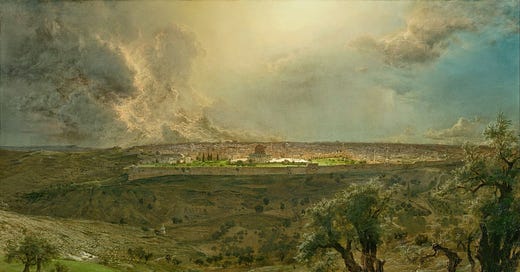


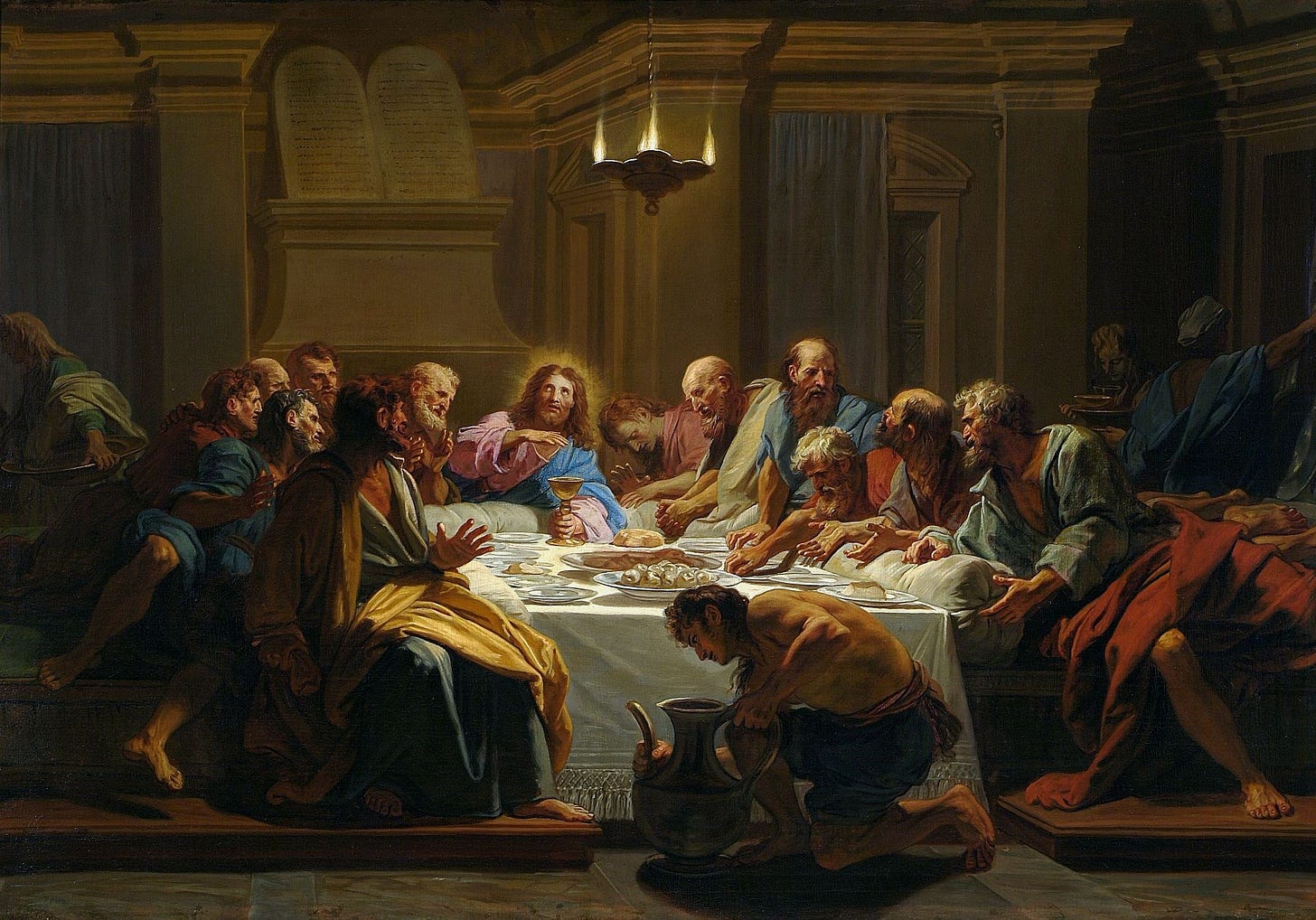



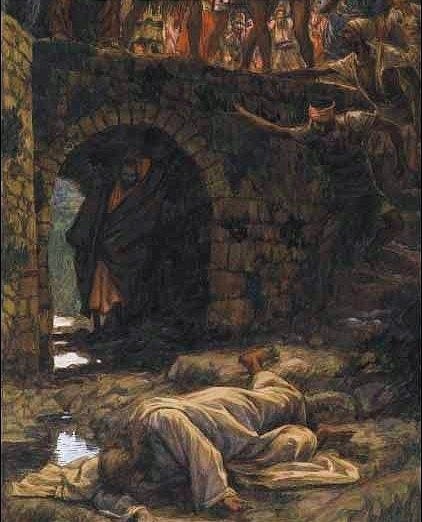
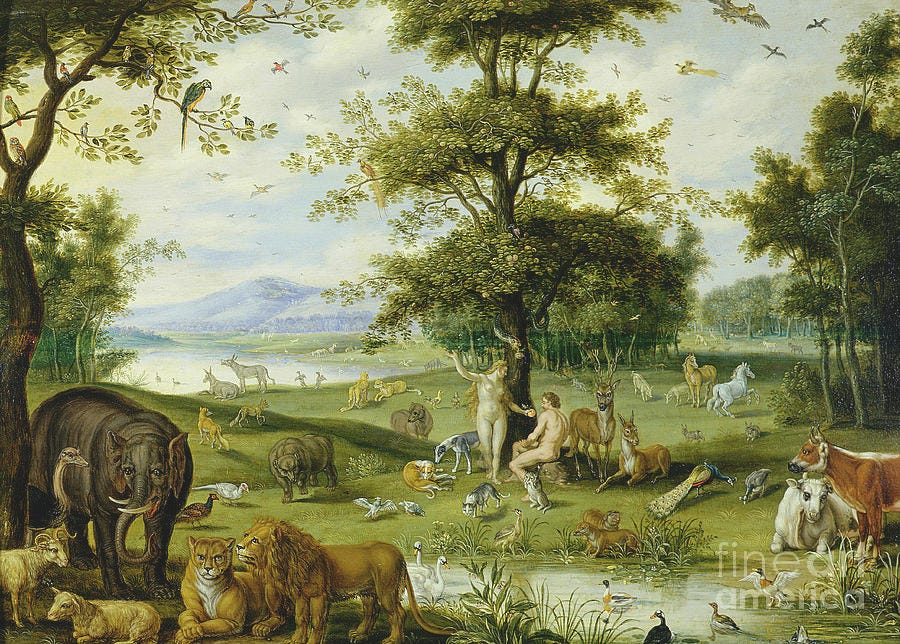
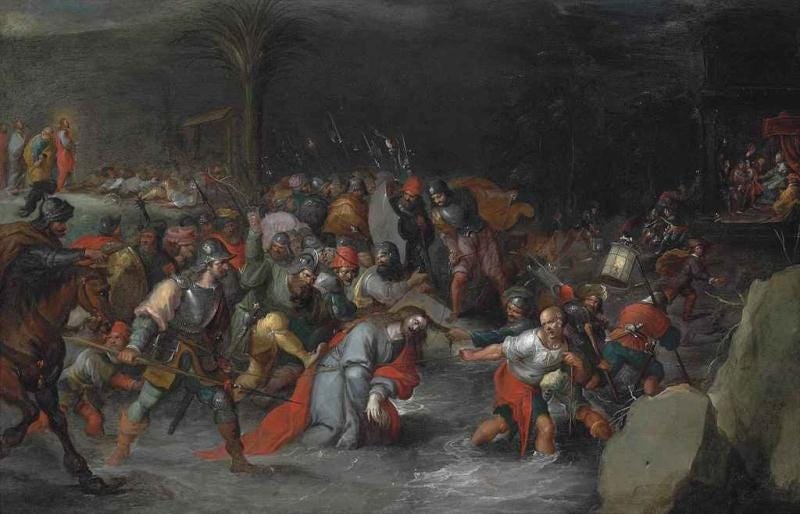

Wonderful reflection!
I wanted to read more!!